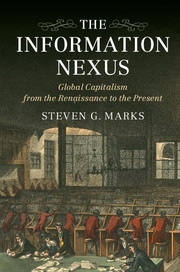2 - “Capitalism” in the mirror of the twentieth century
from Part I - “Capitalism,” word and concept
Published online by Cambridge University Press: 05 July 2016
Summary
Chapter 1, for the most part, conveyed the views of scholars and politically active opponents of capitalism. But the word “capitalism” has had a deeper resonance due to its popular usage worldwide. It emerged as a mainstream term because of the geopolitics of the twentieth century, in reaction both to the specter of Russian communism and the rise of America as a military, commercial, and cultural superpower.
“Into the Russian looking glass”
With the victory of Bolshevism in Russia, anti-capitalist rhetoric posed a shiver-inducing threat that compelled a reexamination of American economic life. Russia became America's “dark double,” and Americans came to understand their nation as its diametrical opposite, as the positive to its negative force. In 1949, the writer and Librarian of Congress Archibald MacLeish lamented this pattern of thought for allowing the mental “conquest of the United States by the Russians.” American political debate, he wrote, “was sung to the Russian tune; left-wing movements attacked right-wing movements not on American issues but on Russian issues, and right-wing movements replied with the same arguments turned round about.” With respect to policy, “whatever the Russians did, we did in reverse.” As America “wandered into the Russian looking glass,” its perceptions of capitalism also took shape in the reflection.
Nearly every one of the thousands of articles in the American press that mentioned the word “capitalism” from the 1880s to the 2000s defined it with reference to Russia or the Soviet Union, which in American opinion came to represent the polar opposite of the US political and economic system. This evidence leads to the conclusion that American views of capitalism, whether conservative or liberal, developed out of America's preoccupation with Russia in the twentieth century. In existential rivalry with the USSR, Americans were forced to adopt the socialist term “capitalism” precisely because it was the object of communist abuse.
As the press conveyed the earth-shattering events occurring in Russia, they adopted the word “capitalism” en route. Nearly every New York Times article that mentioned it in the 1920s was connected with the Soviet Union and its rulers Lenin, Trotsky, or Stalin. Simple reporting on the USSR required adoption of the term, and editorializing necessitated defining it.
- Type
- Chapter
- Information
- The Information NexusGlobal Capitalism from the Renaissance to the Present, pp. 21 - 48Publisher: Cambridge University PressPrint publication year: 2016



